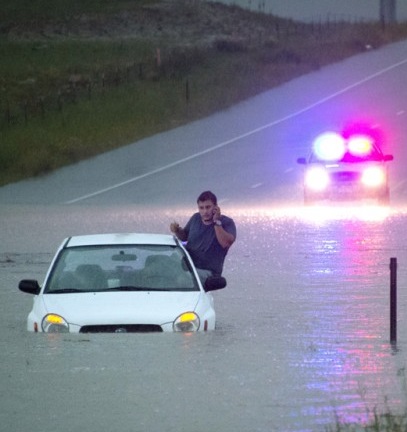UN reports disaster damage
 A UN report warns humanity is in a ‘spiral of self-destruction’.
A UN report warns humanity is in a ‘spiral of self-destruction’.
The United Nations Office for Disaster Risk Reduction (UNDRR) has published its Global Assessment Report 2022, which predicts the world will face 1.5 disasters a day - 560 a year - by 2030.
It describes humans as being in a “spiral of self-destruction” by heating up the climate and ignoring the outcomes and risks, potentially pushing millions more people into poverty.
There have been between 350 and 500 medium-sized to major disasters recorded annually since 2002, and the UNDRR says governments are “fundamentally” underestimating their true impact on lives and livelihoods.
“Raising the alarm by speaking the truth is not only necessary but crucial,” says Mami Mizutori, UNDRR head.
“The science is clear. It is less costly to take action before a disaster devastates than to wait until destruction is done and respond after it has happened,” she says.
As the UN-backed Intergovernmental Panel on Climate Change (IPCC) frequently reports, climate change impacts from heat to drought and flooding are becoming more frequent and intense, while measures to slash planet-heating emissions and adapt to global warming are both lagging.
The UNDRR adds to this, saying the increasingly frequent and intense disasters have led to more deaths in the last five years than in the previous five-year period.
If trends continue, climate change will push an additional 100 million people into poverty by 2030.
“The world needs to do more to incorporate disaster risk in how we live, build and invest, which is setting humanity on a spiral of self-destruction,” Deputy UN Secretary-General Amina J Mohammed said in a recent statement.
Disasters have cost an average of $US170 billion each year for the last decade, with the world’s poorest people and developing nations suffering disproportionately.
The developing world already loses an average of 1 per cent of its gross domestic product a year to disasters - ten times more than high-income countries. Asia-Pacific nations are experiencing a 1.6 per cent annual GDP dent from natural disasters, the report says.
Maarten van Aalst, director of the Red Cross Red Crescent Climate Centre, says national governments must stop “managing each crisis as a separate surprise”, and look at a systemic level to help people cope with climate threats.
“Sadly, those who are worst affected have the least resources to address the increasing hazards,” he says.
“To really reduce risk, we must also reduce inequalities.”







 Print
Print